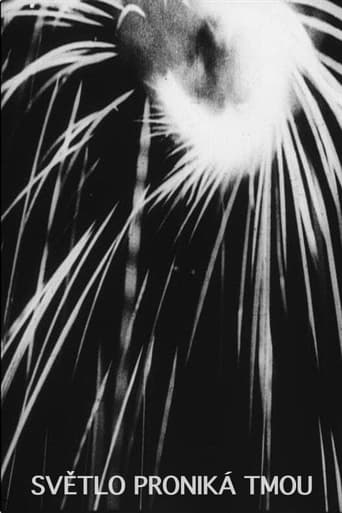

'The Light Penetrates the Dark (1931)' was apparently the first work of Czech experimental filmmaker Otakar Vávra, released when he was twenty years old. His career would continue for at least seventy years more, and, at age 97, Vávra is admirably still with us. A brief film of only 5 minutes, this short is, as far as I could tell, a tribute to the harnessing of electricity, and its ability to illuminate the darkness of the night. It plays out like a feverish Soviet montage, certainly inspired by the styles of Eisenstein and Vertov, as we are shown a series of hurried images light bulbs, lightning bolts, Tesla coils and all sorts of bizarre contraptions that presumably aid the electricity-producing process. All this is set to an intense piano score by Joachin Bärenz, which perfectly aligns itself with the editing, giving the film an invigorating rhythm that makes it impossible to look away.I'm not typically a huge fan of experimental cinema, but what I like about 'The Light Penetrates the Dark' is its incredible energy. This is one of those films that doesn't make all that much sense, but you're compelled to watch it, anyway. Vávra occasionally does crazy things with the camera, using extreme zooms and out-of-focus photography to keep up the rhythm. However, the most striking thing about the photography (shot by Frantiek Pilát) is the contrast between the pitch-black background and the vivid lighting in the foreground. There's a certain intimacy to be found in the claustrophobic closeness of the darkness, and the single haven of security to be found in the warm glow of a light globe. In a way, the film can perhaps be interpreted as symbolising the manner in which human civilisation is becoming, or has become, God. "Let there be light," said Man, and there was light.
... View More